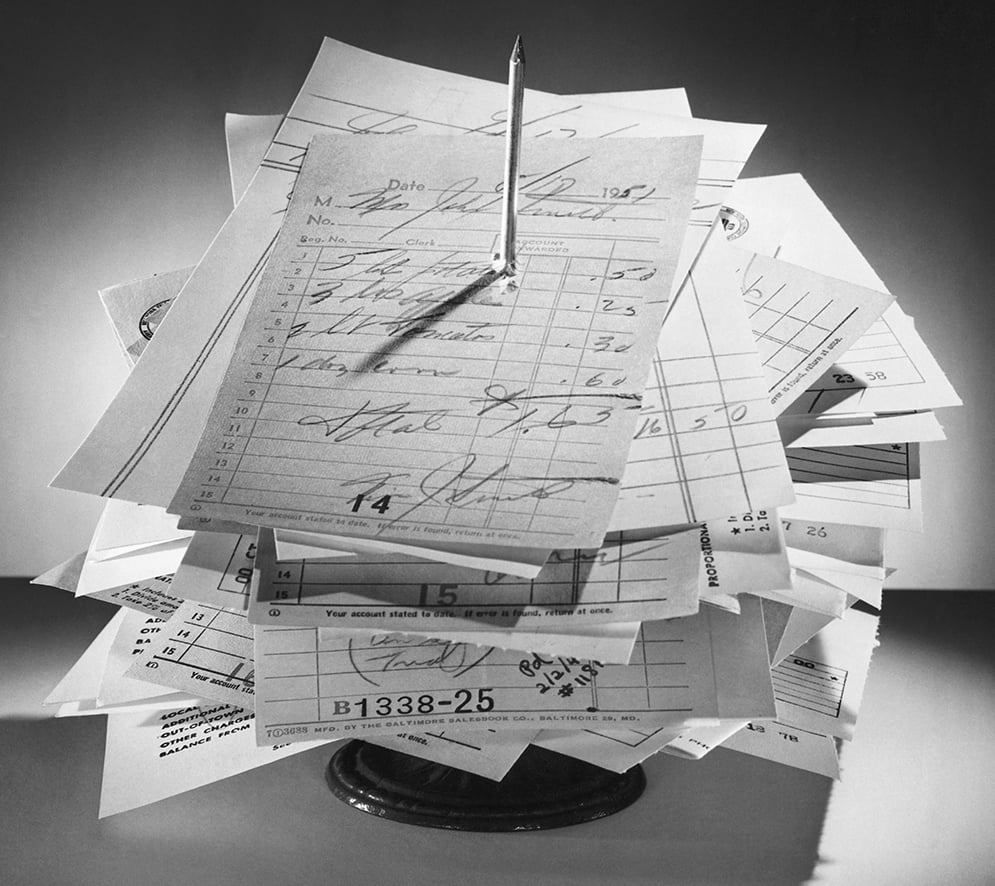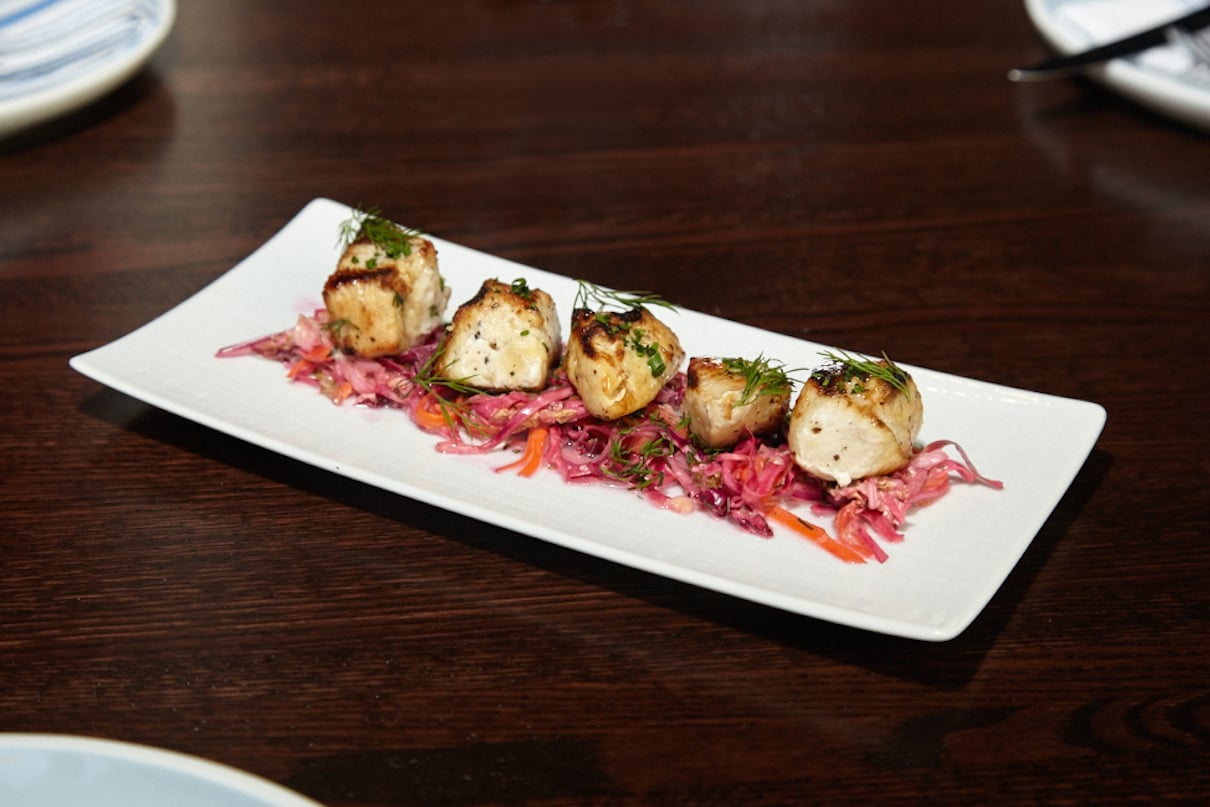
“They won’t open the doors until 5:30,” a waiting customer tells Behroush Sharifi when he pulls on the locked door at Proof, a DC wine bar, at 5 one evening.
“Right,” Sharifi says before forging through a tangle of patio furniture to a back door with a sign that reads do not enter—authorized personnel only. He pushes it open and enters a breezeway leading into the kitchen.
The Saffron King, as 50 Washington chefs know Sharifi, is expert at bypassing locked doors. While his competitors send product lists via e-mail, he shows up during restaurants’ quietest hours—before noon or between 2 and 5. Or he visits chefs when they’re wrapping up a long day with a nightcap.
At Proof, the fromagère and assistant sommelier stops the ponytailed Sharifi, attired in cargo shorts and Hawaiian-print shirt. In a British accent, Sharifi, 41, tells him he’s there to talk to executive chef Haidar Karoum. Sharifi knows that asking for the chef’s attention just before a restaurant unlocks its doors is a faux pas, but he lies and says Karoum is expecting him.
Reluctantly, the chef ducks into a nook outside the kitchen and watches Sharifi pull out small plastic bags of exotic Middle Eastern spices, seeds, and dried fruits. Sharifi has something to say about each: The dried shallots have been called “white-truffley” by celebrity chef Eric Ripert, and the tiny clusters of manna are the same as the ones that saved the Israelites in the Old Testament—“manna from Heaven.”
Sharifi’s knowledge of his products goes back thousands of years through the history of the spice trade—he studied ancient Persian poetry and its connection to food with literary critic Harold Bloom at New York University. When Spanish chefs tell Sharifi they can’t use his saffron because it’s from Iran, he reminds them that Arabs introduced the vibrant spice to Spain. He sells barberries—which look like tiny cranberries and taste like sour currants—by noting that the Crusaders brought them back to Europe.
Sharifi finishes and puts the samples back into a bag. “All my products and prices are listed on there,” he says, pressing a packet of papers into the chef’s hand.
He pushes open the back door, unlocks his mountain bike, and speeds off to steal five minutes from another chef.
Sharifi, who’s based in Manhattan, sells his ingredients to 50 restaurants in Washington—he drives down with his bicycle on the back of his car or borrows a bike from the friend he often stays with. Almost all of his clients are fine-dining establishments.
For a chef, a visit from Sharifi is a gateway into the world of international ingredients. Many spices are from his native Iran, which has been all but barred from exporting goods to the United States. Some of his bags hold spices that almost no one else in the States sells, such as the barberries. Or Iranian angelica seeds, whose distinctive flavor can last up to ten minutes on the palate. His sun-dried white figs, also from Iran, are like candy. Even his more familiar items are eye-opening: Fennel seeds from India are triple-bagged because their pungent smell would perfume other spices packed near them.
Sharifi—who also sells to restaurants in Manhattan, Philadelphia, Boston, New Orleans, and San Francisco—stormed into Washington in 2007, about two years after meeting chef Roberto Donna, then at Galileo, at a chef’s event in Cleveland. On Sharifi’s first trip to DC, he visited 25 restaurants; half became customers. A year later, he counted 40 local chefs as clients. They paid attention because of his unusual products, his knowledge, and his nerve.
“I’ve never seen another purveyor just show up,” says Donna, who used Sharifi’s saffron in his risottos at Bebo in Crystal City. “He’s not shy. He’s sure of what he has.”
Proof’s Haidar Karoum says Sharifi’s products are desirable because they’re fresh: “Spices from a normal purveyor could have been sitting on a shelf for years. The cardamom that Behroush brought—when it was opened, I could smell it across the kitchen.”
Sharifi’s goods have seeped into such unexpected places as tradition-laden 1789, where chef Daniel Giusti has used Iranian white figs. Marcel’s, a French/Belgian restaurant in DC’s Foggy Bottom, has bought urfa and aleppo peppers—also Iranian products.
At 5:30, half an hour after arriving at Proof, Sharifi walks into Poste in DC’s Penn Quarter, where chef Rob Weland grows produce on the restaurant’s back patio. As diners file in, the hostess reluctantly finds Weland, who shakes Sharifi’s hand and tells him he has only a couple of minutes to talk.
“I don’t need much time,” Sharifi says. “I was here a couple months ago to drop off some spices, and I just wanted to give you some new ones that I just got in.”
Weland looks anxiously over his shoulder as Sharifi begins his monologue, pulling out plastic bags. When he’s finished, Weland thanks him and says, “I don’t think I was here the last time you stopped by. I’d never forget you if I’d met you.”
That night, Sharifi eats dinner at Tosca. When the dining room is almost empty, chef Massimo Fabbri sits down with him to examine some ingredients. Fabbri is intrigued by a new product—Iranian raisins.
After giving the chef a bag of samples, Sharifi leaves and lights a cigarette on his way to Zaytinya, his tenth restaurant of the day. It’s 10:30.
“Kitchen’s closed,” a bartender says as Sharifi eases onto a barstool.
“Just a Negroni,” he says—his usual cocktail.
Drink in hand, he asks for whoever’s in charge of the kitchen. Out comes a sous chef, more focused on the line cooks cleaning up than on Sharifi. But once the sous chef tastes the products, his interest is piqued. He can’t commit to anything, though, until his boss tries them.
That’s fine with Sharifi. He has laid the groundwork and given his sales pitch, which doubles as a soapbox for Middle Eastern countries that have troubled reputations in the United States. He says he sometimes feels like a food ambassador working on behalf of nations such as Iran. And what better place to practice culinary foreign relations than Washington?
“I’ve always thought it’d be great to get my ingredients into the White House or the kitchens of the FBI or the CIA,” he says. “It’d be valuable for people there to familiarize themselves with the kind of food, the history, and the language of these other countries. I’d love to shed some positive light on those places that are seen in poor light. We can all come together through food.”

















